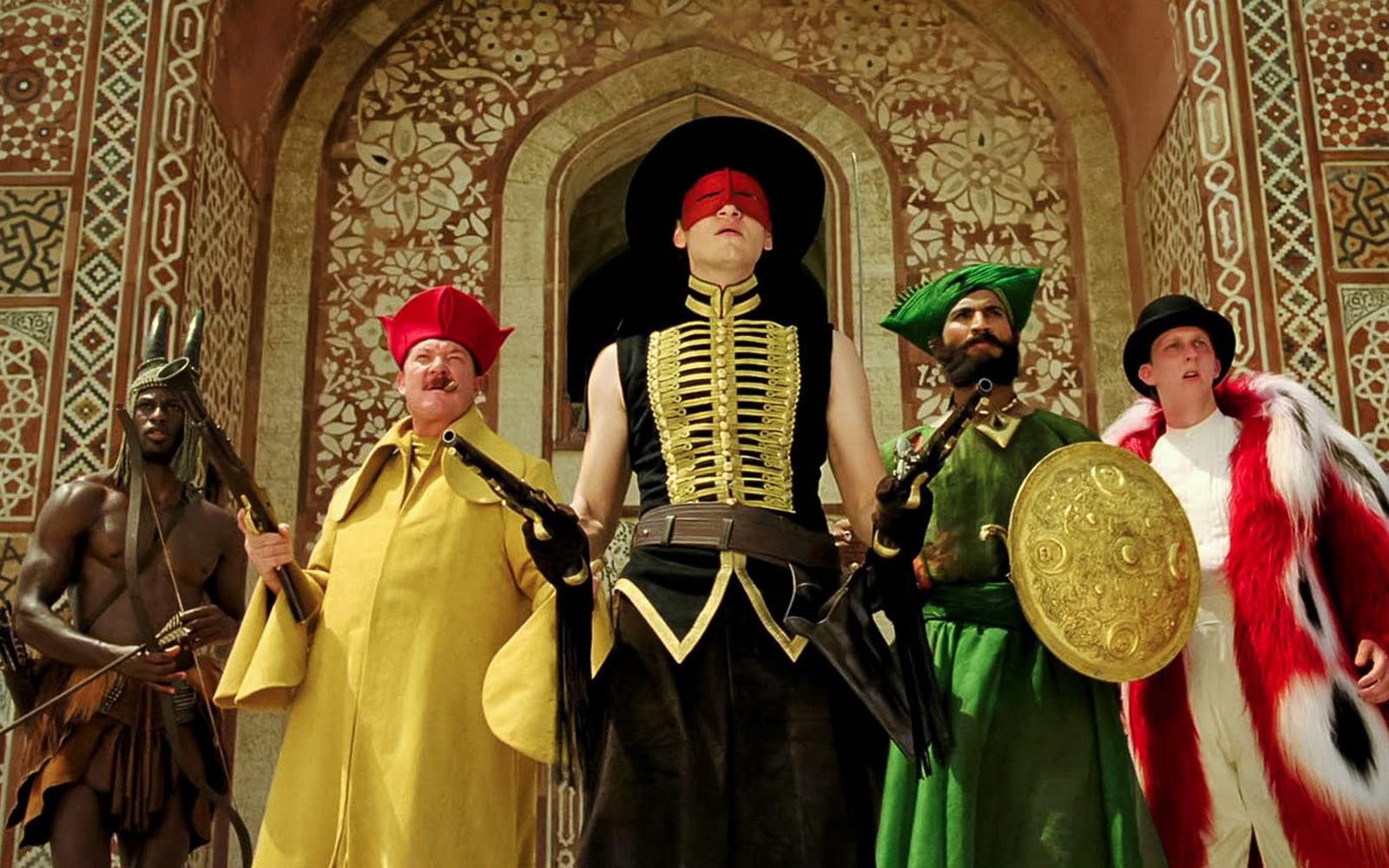
The whole time I sat there watching The Fall, the latest film from acclaimed Indian director Tarsem, I found myself listing off all of the elements of the movie that I liked: the sumptuous, almost decadent visuals; the fantastical, whimsical story within a story; the themes about the power of myth and storytelling; the clever layers of strongly-acted characters; and best of all, the fact that the lead child actor was cute, but in a blessedly non-precocious manner.
And yet, I also sat there confounded as to why I wasn’t enjoying all of these things as much as I thought I really should be. For me, The Fall was one of those rare movie experiences, a movie that does practically everything right, and yet in the end, fails to move you beyond praising its many obvious technical merits.
The Fall (which is based on the 1981 Bulgarian film Yo Ho Ho) opens in hospital on the outskirts of Los Angeles circa the 1920s. A young immigrant girl named Alexandria (Catinca Untaru) is recovering from a broken arm she suffered while picking oranges with the rest of her migrant family. In the short time she’s been there, she’s quickly worked her way into the hearts of everyone and now has free run of the place.
As she wanders the hospital’s halls, she meets Roy Walker (Lee Pace), a Hollywood stuntman who is recovering from an accident he suffered on the set, an accident that has cost him his legs. The two seem an unlikely pair, but they instantly hit it off, and Alexandria becomes especially enamored when Roy begins telling her a fantastic story about five heroes and their quest to overthrow an evil governor.
Soon enough, Alexandria gets caught up in the story, and the thin layer between reality and myth begins to fade before her eyes. Folks from the real world begin popping up in Roy’s story as he tells it, often in very humorous ways, while story elements begin to inform and influence Alexandria’s decisions. However, Roy is reluctant to continue telling the story. After some cajoling, he agrees to do so on one condition: Alexandria must get him some special pills to help him sleep. Little does she know that Roy, who is despondent over the loss of his legs and his lover’s betrayal, is planning to commit suicide.
Throughout the movie, I heard many “oohs” and “ahs,” and for good reason. The Fall is an extremely lovely film, easily one of the most visually stunning films of the festival. (The little still accompanying this review really doesn’t do the film’s visuals justice at all.) Tarsem, who previously directed 2000’s The Cell but is best known for his commercial and music video work, packs every frame with something dazzling: elaborate costumes, jawdropping vistas and cityscapes, a huge Russian wagon pulled through the desert by a hundred slaves, and a wedding ceremony accompanied by whirling dervishes, to name but a handful.
However, in the end, these dazzling visuals overwhelm everything else, which is a shame because the movie’s heart and soul — the relationship between Roy and Alexandria — truly is touching and enjoyable. The movie, despite the obvious amount of talent and visual splendor on display, ends up feeling fairly manufactured. It feels less like a film, and more like a showreel or promo piece for all of the really cool visual tricks, layouts, and arrangements that Tarsem can pull off.
Throughout the film, I felt like Tarsem was trying to get my attention, to get me to notice this really alluring costume, or the angle at which he shot this stunning castle wall, or how he was able to seamlessly transition from the shot of a pinned butterfly to a deserted butterfly-shaped island. Simply put, The Fall ends up drowning in its own excesses, constantly trying way too hard to wow the viewer and sweep them off into an imaginative, whimsical tale of heroes, bandits, and princesses in such an obvious manner that it ends up feeling rather ingratiating.
There’s no denying that the film — which was shot in 23 countries and has thousands of cast members — is a staggering technical achievement, and that Tarsem has an eye for shooting really, really beautiful film. So if you go into The Fall just looking for fine eye candy, eye candy that falls somewhere between Terry Gilliam, Ron Fricke’s Baraka, and a National Geographic special, I don’t see how you can be disappointed. But in the end, it just feels hollow and empty. Even Alexandria, with her considerable charm, and Roy, with his considerable pathos and affability, can’t save the film from bogging down and ending on an emotional note that feels extremely cloying and, again, manufactured.
This entry was originally published on ScreenAnarchy on .